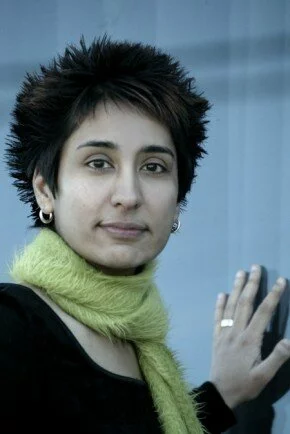 On the heels of America’s most-wanted terrorist being eliminated in Pakistan by U.S. Special Forces, the woman who was once dubbed by the media as “Osama Bin Laden’s Worst Nightmare” made a statement that I found haunting. Islamic reformer Irshad Manji made the scary point in an op-ed in The Wall Street Journal that President Obama was wrong in saying that “Bin Laden was not a Muslim leader.” What should be keeping us up at night, according to Manji, is the fact that he actually was a legitimate Muslim leader in the eyes of many.
On the heels of America’s most-wanted terrorist being eliminated in Pakistan by U.S. Special Forces, the woman who was once dubbed by the media as “Osama Bin Laden’s Worst Nightmare” made a statement that I found haunting. Islamic reformer Irshad Manji made the scary point in an op-ed in The Wall Street Journal that President Obama was wrong in saying that “Bin Laden was not a Muslim leader.” What should be keeping us up at night, according to Manji, is the fact that he actually was a legitimate Muslim leader in the eyes of many.
“Bin Laden and his followers represent a real interpretation of Islam that begs to be challenged relentlessly and visibly,” she wrote in the op-ed, which was excerpted from her soon-to-be-published new book, “Allah, Liberty and Love” (Free Press).
So what does this have to do with Jews? It has to do with us because Manji and other reformers have reached out to liberal Jews and Christians in search of allies in this challenge. Although she sees this ijtihad (a religious-intellectual struggle fueled by independent thought) as primarily the responsibility of Muslims, she calls on us to support and partner with those brave Muslims willing to engage in it.
Manji criticizes moderate Muslims, accusing them of not being bold enough, of not being willing to take the radical steps necessary to bring about an Islam that can truly coexist with the modern world. She wrote:
’Moderate’ Muslims are part of the problem. As Martin Luther King Jr. taught many white Americans, in times of moral crisis, moderation cements the status quo. Today, what Islam needs is not more ‘moderates’ but more self-conscious ‘reformists.’ It is reformists who will bring to my faith the debate, dissent and reinterpretation that have carried Judaism and Christianity into the modern world.
So, I have asked myself why we Jewish women have not answered Irshad Manji’s request for support more enthusiastically. Sure, many of us sign petitions against atrocities being committed against women (and men) in the name of Islam when they appear on our Facebook pages. But how many of us are really ready to link arms with Irshad Manji in the way that Abraham Joshua Heschel linked arms with Martin Luther King, Jr.? So far, not many.
It surely has to do with the fact that the relationship between Jews and Muslims is a complicated one overshadowed by the conflict between Israel and the Palestinians, and Israel’s relations with the Arab world in general. And one can’t ignore the very real fact that the worst that most Jews who challenged Jewish texts or rabbinical interpretations feared was social shunning or being labeled an “Epikorus,” while Islamic reformers like Manji are the object of jihadi death threats.
As Hillel said, “If I am not for myself, who will be?” Ijtihad is ultimately going to have to be done by the Muslims themselves. However, “But if I am only for myself, who am I?” applies to us. As a first step, we can get to know our Muslim neighbors and colleagues and learn about their religion. By taking an interest in contemporary Islamic ideas and speaking openly about them, Manji tells us, “You’ll be creating conversations where none would have existed.”
Source: forward.com



